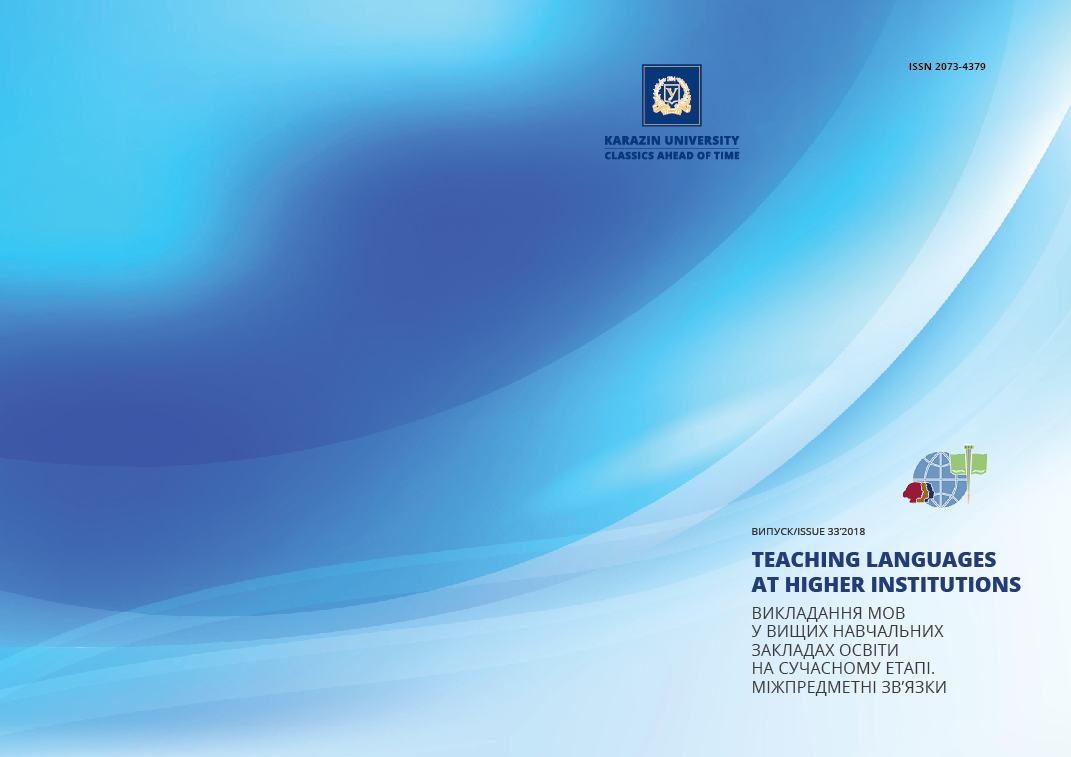The problems of foreign students’ training of listening skills by means of information and communication technologies
Abstract
The article focuses on the importance of improving the effectiveness of foreign students’ listening skills formation at the initial stages of learning Russian as a foreign language. The author outlines the stages of work and its tasks, the groups of exercises and test tools, which are topical for listening skills training of the specified contingent of students with the help of information and communication technologies. The ways to overcome the difficulties of using multimedia educational programs as a training complex for teaching listening skills in accordance with specific requirements of this type of teaching aids and the general requirements of teaching materials for listening have been considered.
The author states that non-native language proficiency is the most important means of obtaining the professional education for foreign students. The significance of the use of information and communication technologies as the newest means of increasing the efficiency of the educational process as well as its individual subsystems including language training have been determined in the article.
Different aspects of teaching listening as a type of speech activity in scientific works of domestic and foreign scientists have been analyzed. The performance of listening skills improvement is possible through the systematic analysis of problems caused by non-compliance with linguodidactic requirements for the compilation of training materials for teaching listening skills to foreign students at initial stage of learning a non-native language.
The article deals with specific requirements for educational materials compiled with the help of information and communication technologies, among which are multimedia, interactivity, nonlinearity and others are the most important ones. The article discusses the ways of combining two separate groups of requirements for the combination of this type of teaching aids.
The author analyzes the experience of development of multimedia educational programs for teaching listening to the foreign students at the initial stages of learning Russian as a foreign language based on the adapted texts.
Downloads
References
Azimov, E.G. (2012). Informatsionno-kommunikatsionniye tehnologii v prepodavanii russkogo yazika kak inostrannogo [Information and communication technologies in teaching Russian as a foreign language]. Moscow: Russkiy Yazik. Kursi [in Russian].
Bovtenko, M.A. (2005). Kompyuternaya lingvodidaktika [Computer linguodidactics]. Moscow: Flinta: Nauka [in Russian].
Kapitonova, T.I. and Moskovkin, L.V. (2006). Metodika obucheniya russkomu yaziku kak inostrannomu na etape predvuzovskoy podgotovki [Methods of teaching Russian as a foreign language at the stage of pre-university training]. Saint Petersburg: Zlatoust [in Russian].
Leont’yev, A.A. (Ed.). (1974). Osnovi teorii rechevoy deyatel’nosti [Fundamentals of the theory of speech activity]. Moscow: Izd-vo Nauka [in Russian].
Passov, Ye.I. (1989). Osnovi kommunikativnoy metodiki obucheniya inoyazichnomu obshcheniyu [Basics of communicative teaching of foreign language communication]. Moscow: Russkiy Yazik [in Russian].
Pogrebnyak, A.N., Yermolenko, N.V., Harahash, L.P. and Yatsyuk, S.M. (Comps.). (2005). Programma distsiplini “Russkiy yazik” dlya studentov-inostrantsev podgotovitelnih fakultetov visshih uchebnih zavedeniy Ukraini [The academic program of the discipline “Russian language” for foreign students of preparatory faculties at higher educational institutions of Ukraine]. Navchalni plani ta programi: (dovuzivs’ka pidgotovka inozemnih gromadyan) [Curricula and Programs: (Pre-University Preparation of Foreign Citizens)]. B.M. Andrushchenko, Yu.M. Ivanenko, Yu.O. Koltakov et al. (Comps.). Kyiv: Vidavnitstvo Politehnika, Vol. 2, pp. 78–132 [in Russian].
Talizina, N.F. (1975). Upravleniye protsessom usvoyeniya znaniy [Management of the process of mastering knowledge]. Moscow: Izd-vo MGU im. M.V. Lomonosova [in Russian].
Ushakova, N.I. and Trostinskaya, O.N. (2014). Kontseptsiya yazikovogo obrazovaniya inostrantsev v vuzah Ukraini [The concept of language education of foreigners at universities of Ukraine]. Prepodavaniye russkogo yazika inostrannim studentam: teoriya i praktika, traditsii i innovatsii [Teaching Russian to foreign students: theory and practice, traditions and innovations]. Kharkiv: V.N. Karazin Kharkiv National University, pp. 93–107 [in Russian].
Yeluhina, N.V. (1989). Obucheniye audirovaniyu v rusle kommunikativno oriyentirovannoy metodiki [Teaching listening within the framework of the communicative-oriented method]. Inostranniye yaziki v shkole [Foreign languages at school], 2, pp. 28–36 [in Russian].
Zimnyaya, I.A. (1985). Psihologicheskiye aspekti obucheniya govoreniyu na inostrannom yazike [Psychological aspects of teaching speaking the foreign language]. Moscow: Prosveshcheniye [in Russian].

